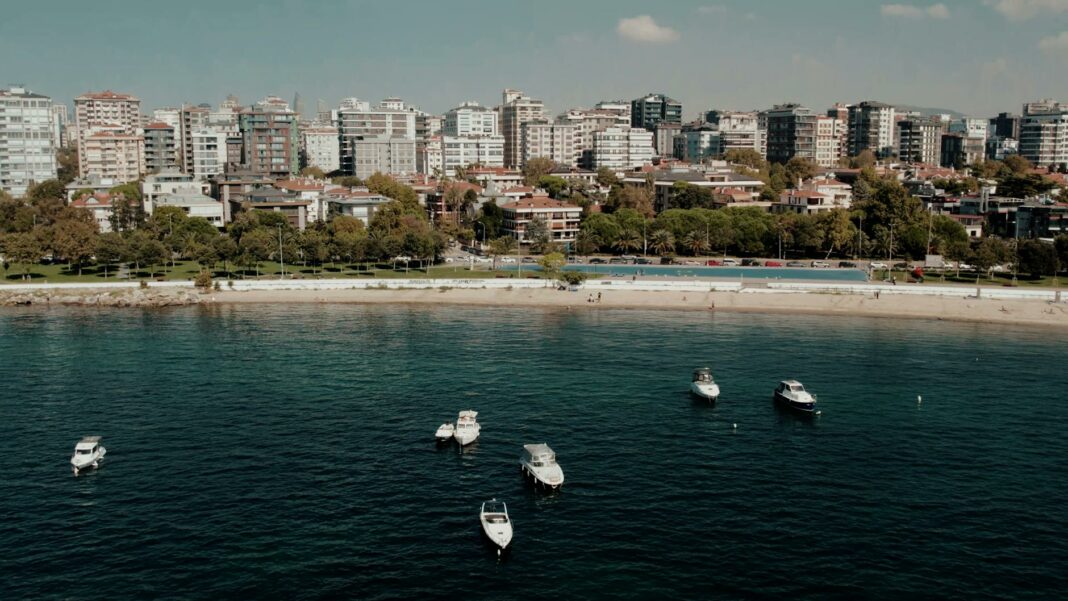**Table of Contents**
1. **Understanding the Essence of Pilgrimage Travel**
2. **Common Mistakes That Travelers Make**
3. **The Importance of Research and Preparation**
4. **Embracing Local Culture and Customs**
5. **Self-Care During the Journey**
6. **Final Thoughts on Pilgrimage Experiences**
7. **Frequently Asked Questions**
**Understanding the Essence of Pilgrimage Travel**
Pilgrimage travel offers a unique opportunity to reconnect with spirituality and discover personal meaning. While many embark on such journeys for religious reasons, others seek a deeper connection with themselves and the world around them. Exploring sacred sites can evoke feelings of reverence and purpose, providing a rich tapestry of experiences that can transform one’s perspective. Therefore, understanding the true essence of pilgrimage is not just about reaching a destination; it’s about the journey itself and the reflections that arise along the way.
Moreover, pilgrimage travel serves as a reminder that the path can be just as significant as the endpoint. Each step taken holds potential for enlightenment, making it essential for travelers to maintain an open mind. By engaging fully with the experience, individuals can unlock hidden meanings and lessons, allowing the pilgrimage to assume a far deeper significance than just a mere trip.
**Common Mistakes That Travelers Make**
Travelers frequently overlook vital aspects of their pilgrimage, which can detract from the overall experience. One significant error is neglecting to plan ahead. While spontaneity has its place, failing to outline a general itinerary can result in missed opportunities to visit vital sites, attend essential ceremonies, or connect with fellow pilgrims. Not accounting for weather conditions or local customs can also lead to unanticipated challenges.
Even when well-prepared, some pilgrims forget to pack essential items. Overpacking can be just as problematic as underpacking. Carrying too much baggage can weigh down the journey, while lacking necessary gear can diminish comfort. Striking a balance is key. Moreover, failing to prioritize rest and recovery during such a demanding adventure can lead to fatigue, detracting from the overall uplifting experience of the pilgrimage.
**The Importance of Research and Preparation**
Detailed research is the backbone of any successful pilgrimage. Aspiring travelers should delve into the historical and cultural significance of their chosen destination. Understanding the customs, traditions, and practices associated with the pilgrimage enables participants to engage more meaningfully with their journey. Additionally, discovering nuances about the path can enhance the overall experience, as it allows individuals to appreciate the landscape and people they encounter more profoundly.
Furthermore, preparing adequately extends beyond simply gathering information. Pilgrims should consider physical training as well, as many pilgrimage routes can be strenuous. A well-prepared traveler, equipped with physical fitness and practical knowledge, is much more likely to enjoy their journey fully. Remember, knowledge is power, and in the realm of pilgrimage travel, it truly enhances the quest.
**Embracing Local Culture and Customs**
One of the greatest joys of pilgrimage travel is the opportunity to embrace the local culture fully. Every destination is rich with uniqueness, and engaging with residents can lead to tremendous personal growth. By stepping outside typical tourist behaviors and immersing oneself in the daily life and traditions of the area, pilgrims can create meaningful connections. Sharing stories, tasting local dishes, or participating in community rituals allows travelers to enrich their pilgrimage beyond pre-established expectations.
Additionally, forming relationships with locals can bestow invaluable insights that guide pilgrims on their journey. Acts of kindness and hospitality from the local community will often open doors to hidden gems that showcase the heart of the pilgrimage. Through these interactions, travelers can uncover layers of meaning tied to the sites they visit that transcend mere sightseeing.
**Self-Care During the Journey**
Pilgrimage travel can be physically and emotionally taxing. Therefore, self-care plays a crucial role in ensuring a fulfilling experience. Taking time for oneself allows travelers to recharge mentally and physically, preventing feelings of burnout during the journey. This can mean anything from finding quiet moments of reflection, journaling experiences, or simply taking breaks to enjoy the surrounding nature. Recognizing and addressing personal needs is vital, allowing each step to be savored rather than endured.
Moreover, incorporating mindfulness practices into daily routines fosters deeper connections with the pilgrimage itself. Engaging in meditation, deep breathing, or thoughtful contemplation while on the road cultivates a sense of presence that enhances the overall experience. Nourishing one’s body with nutritious foods and ensuring adequate hydration will also elevate one’s ability to appreciate the journey.
**Final Thoughts on Pilgrimage Experiences**
An enriching pilgrimage experience can significantly impact lives, shaping worldviews and personal beliefs. Travelling with intention and mindfulness not only fosters a sense of peace but can also lead to newfound clarity in one’s purpose. By avoiding common mistakes, embracing local culture, and prioritizing self-care, travelers can fully immerse themselves in their journey. As the path unfolds, it becomes a rich tapestry of human experience that ultimately connects us all.
Pilgrimage travel is not merely about movement but is an exploration of the self, wrapped within a broader context of spirituality and community. As pilgrims venture out, each individual’s journey has the potential to inspire others and promote a world filled with understanding and compassion.
**Frequently Asked Questions**
1. What is the purpose of pilgrimage travel?
Pilgrimage travel serves as a means to explore spirituality and personal connection to the divine or core values, allowing travelers to reflect and grow deeply in their understanding of self and the world.
2. How can I prepare for a pilgrimage effectively?
Preparing entails thorough research and planning, physical training, packing wisely, and scheduling rest days to ensure an enriching experience.
3. What should I do if I encounter cultural differences on my pilgrimage?
Embrace the differences with an open heart and mind, engage with locals respectfully, and seek to understand their traditions and customs.
4. Is it essential to travel with others, or can I go on a pilgrimage solo?
While group travel offers community support, solo pilgrimage can lead to profound personal discovery; choose the path that resonates with you the most.
5. How can I practice self-care during the pilgrimage?
Prioritizing self-care can include resting when needed, journaling experiences, meditating, hydrating, and nourishing your body with wholesome foods.
Image Credit: Pexels





